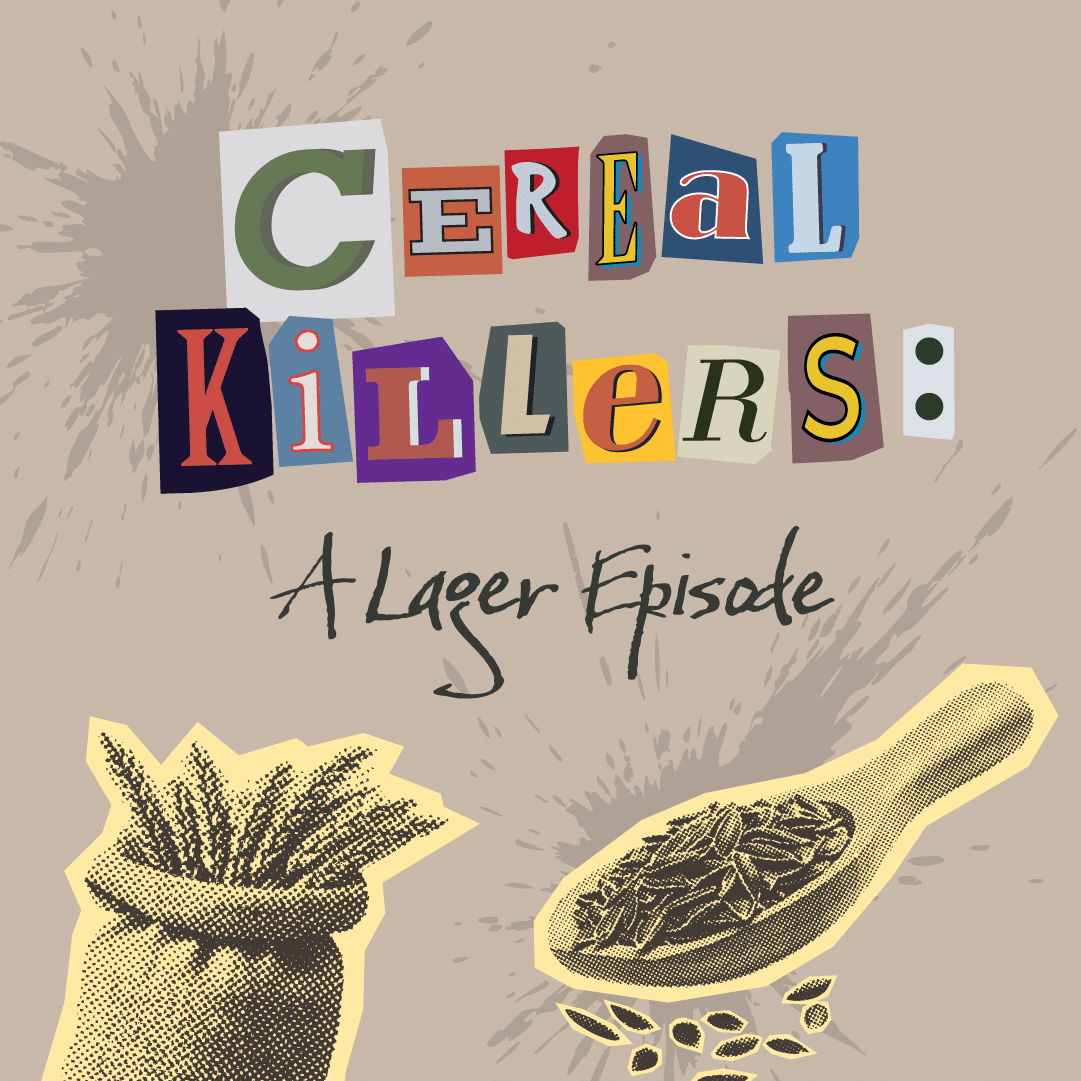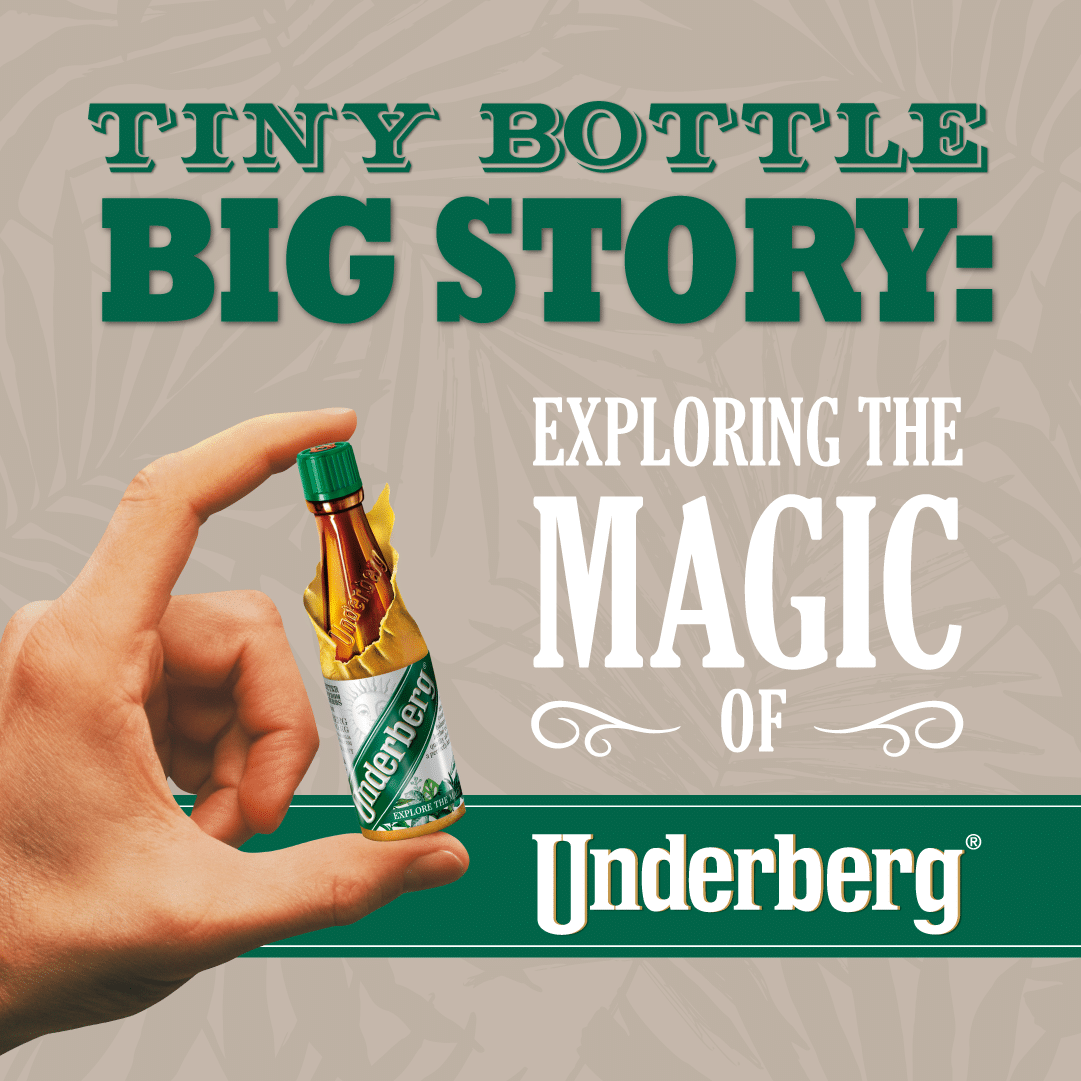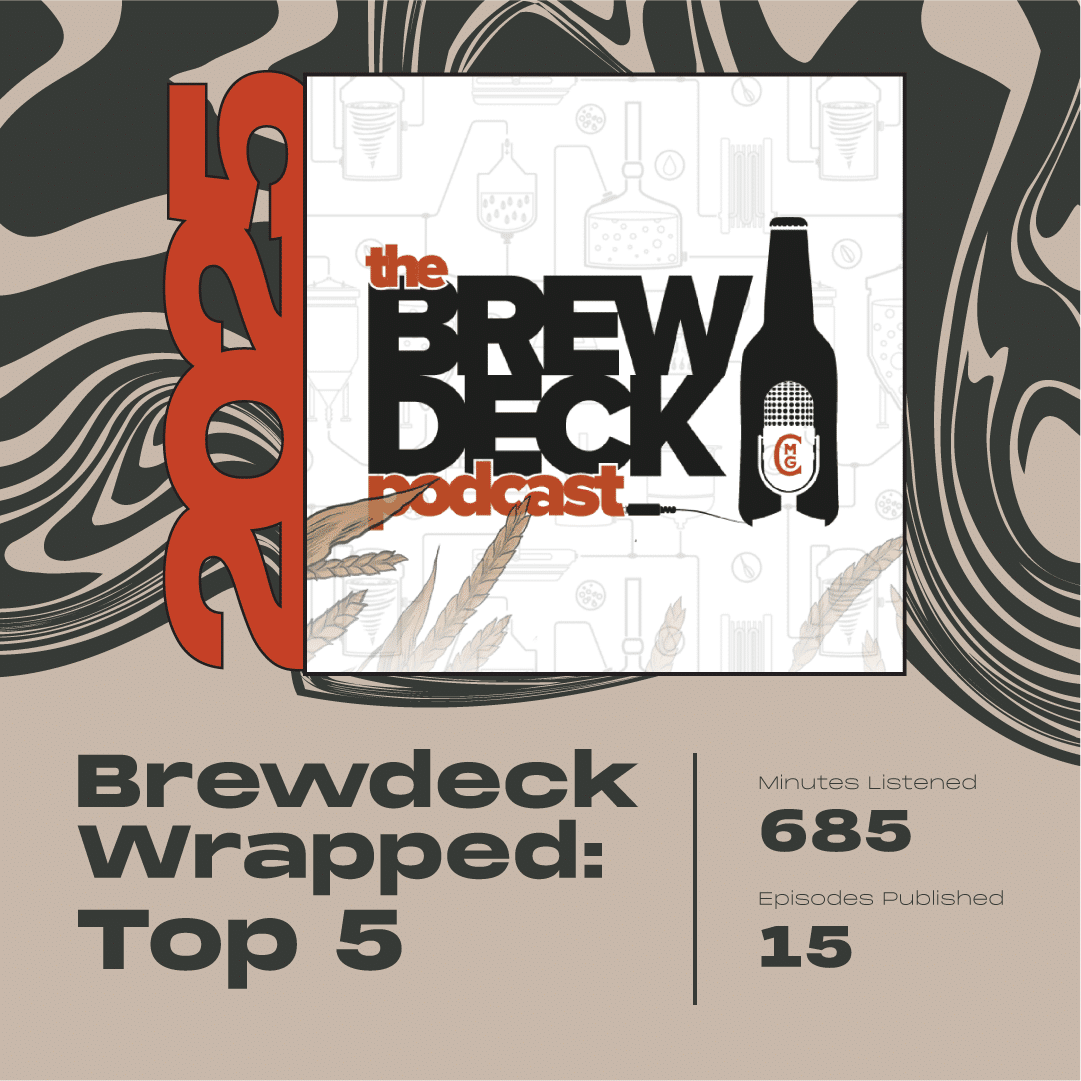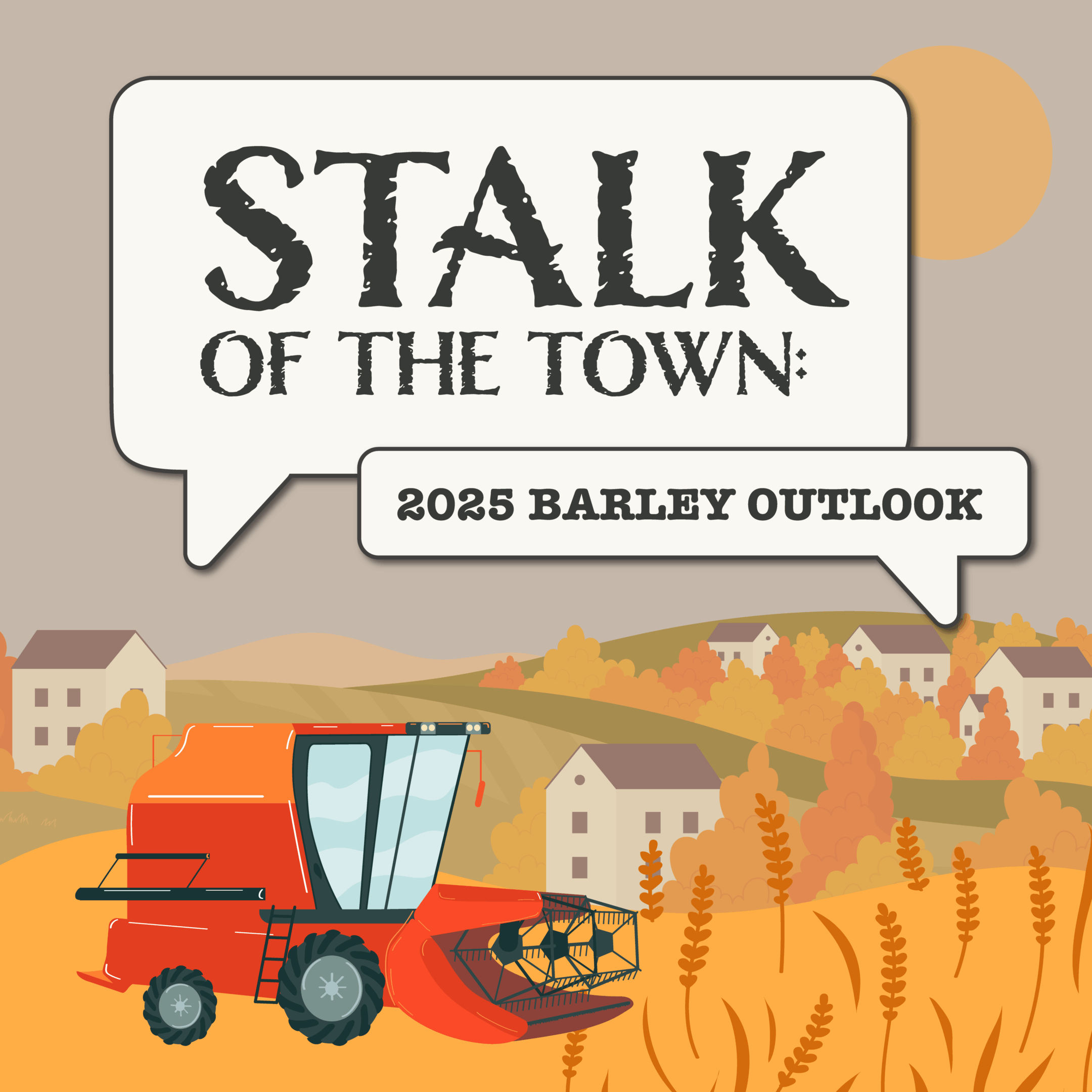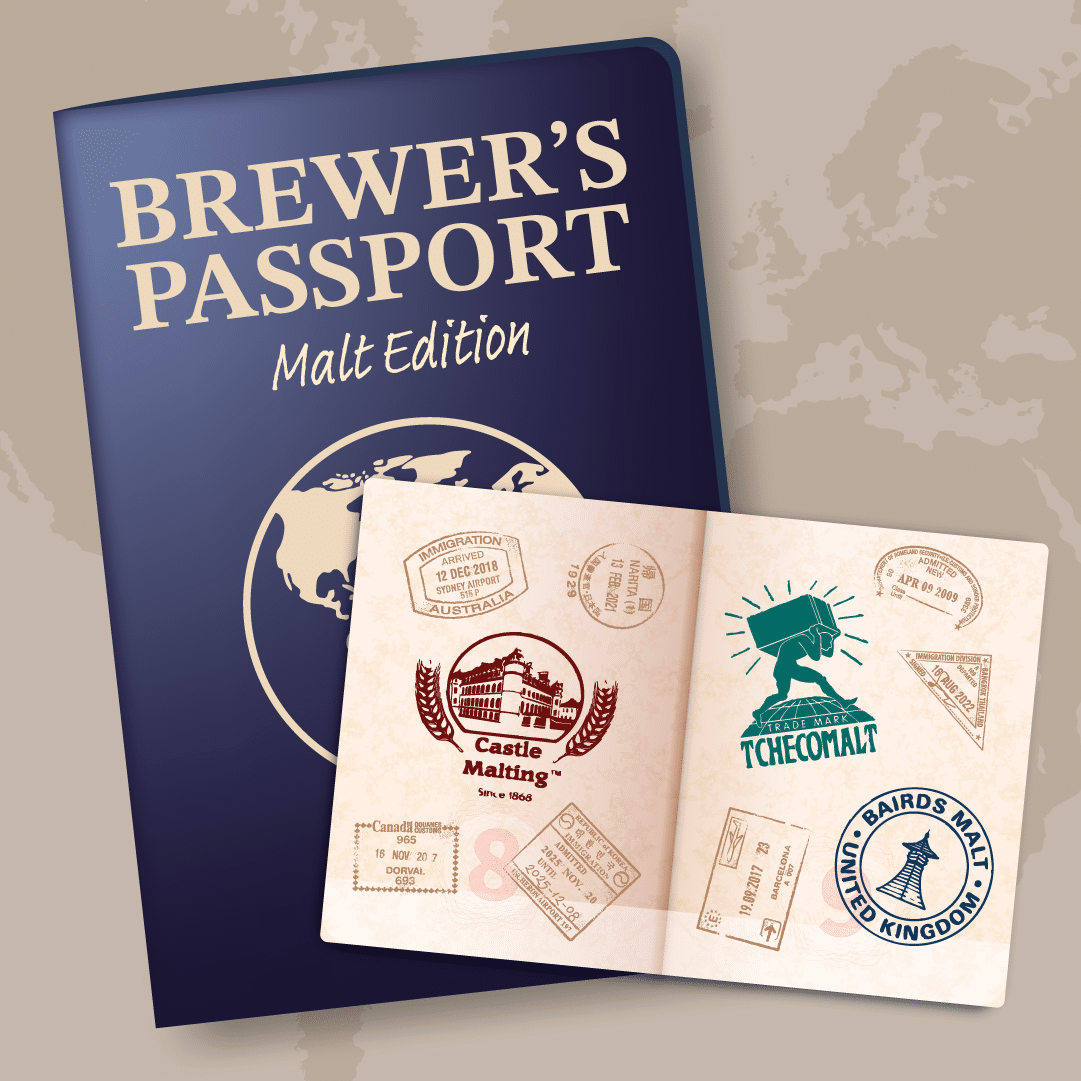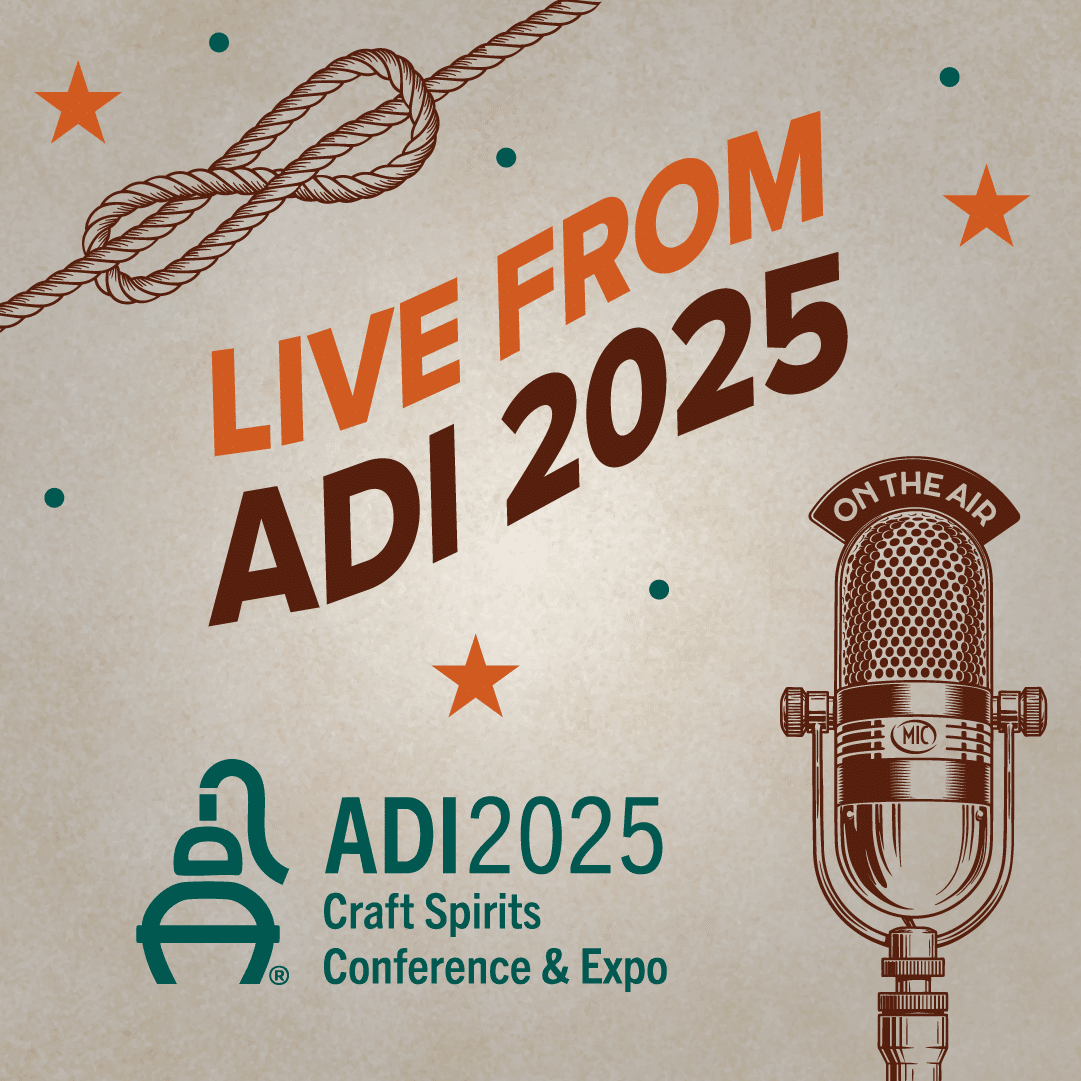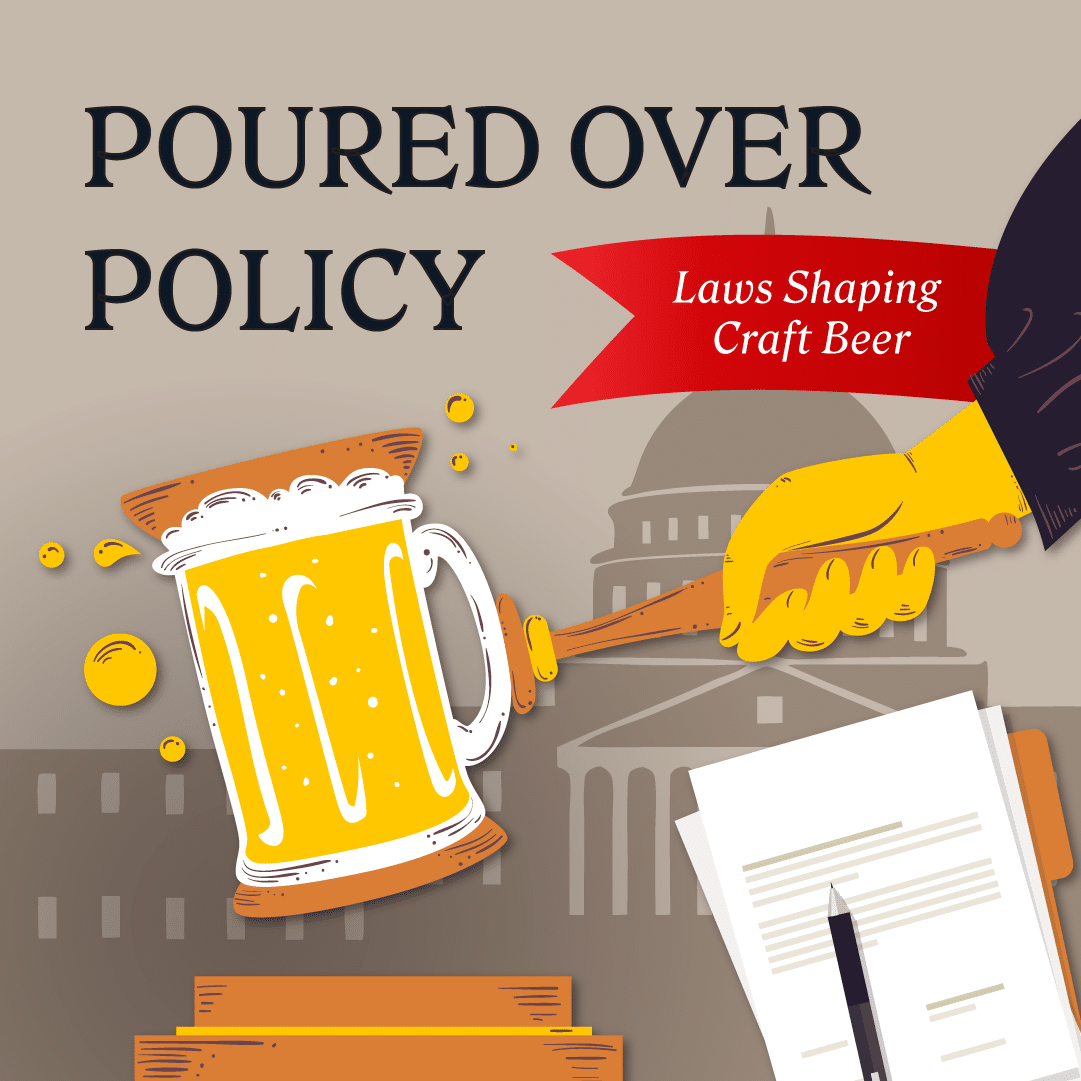
PODCAST GUESTS


MORE EPISODES
SEASON 4, EPISODE 3: LIVE FROM ACSA
PODCAST HOSTS:
CHEYENNE WEISHAAR – SALES REPRESENTATIVE, COUNTRY MALT GROUP
GUESTS:
STEVE HAWLEY – PRESIDENT, AMERICAN SINGLE MALT WHISKEY
CAITLIN BARTLEMAY – HEAD DISTILLER, CLEAR CREEK DISTILLERY
JOSEPH O’SULLIVAN – MASTER DISTILLER, CLEAR CREEK DISTILLERY
Key Points From This Episode:
- What’s the American Single Malt Whiskey Commission (ASMWC) and how it benefits distillers.
- Which current trends is the whiskey industry facing.
- How distillers can join the ASMWC.
- What’s going on at ACSA this weekend and the seminars we’ve attended.
- What the biggest challenges are that distillers are facing right now.
Transcript - Live From ACSA
EPISODE S.4, E.3
[LIVE FROM ACSA]
Cheyenne (00:09):
Welcome back to another episode of the BrewDeck Podcast. For today’s bonus episode, we are coming to you live from the trade show floor of the American Craft Spirits Association Conference here in Portland, Oregon. My name is Cheyenne, and I will be your host for this episode. Today we’ll be chatting with some folks in attendance at the conference, including the president of the American Single Malt Whiskey Commission and the production team from Clear Creek Distillery in Hood River, Oregon. Let’s jump right in. Well, country Malt Group is a proud partner of the American Single Malt Whiskey Commission, so we are very excited to be chatting with Steve Holly, president of the commission. Steve, how are you doing?
Steve (00:43):
I’m doing great. Thanks for having me.
Cheyenne (00:44):
Awesome. We’re stoked to have you. Well, to jump right in, why don’t you tell us a little bit about yourself, how you got your start in the industry and what you’re working on now?
Steve (00:53):
How I got my start? Well, I think probably the best place to begin would be with Westland Distillery out of Seattle, Washington. That was 2009, 2010, depending on what you consider a starting point and what you consider legal. But yeah, I was a part of a group that got the Westland off the ground, and that was a wild and fun ride. And the commission really came out of our work with Westland, and in 2015, we were sitting around a table saying, well, this is a fun business to be in, but it’s not actually a business because it’s in a category that doesn’t exist, so maybe we should do something about that. So we agreed that it was high time that we got some folks together and got a pen and paper out and wrote down what American single malt actually means. So we did that in March of 2016 in Chicago, and since then we’ve been on the crusade.
Cheyenne (01:53):
Yeah, very busy, I assume.
Steve (01:55):
Yeah, it has been. It’s fits and starts for sure.
Cheyenne (01:59):
Yes yeah, for sure.
Steve (02:00):
But we were nine people when we first sat down. Nine distilleries, I should say. And now we count over a hundred as members of the commission, and I do know that personally, I can count over 200 distilleries making single malt in this country, so…
Cheyenne (02:16):
That’s very cool. Yeah, a lot of growth.
Steve (02:18):
Yeah, a lot of growth, a lot of new people coming into it, a lot of momentum behind it. And we say that it’s kind of the next big thing in whiskey, and it really is. It’s kind of taken on its own life, and we’re in an exciting moment right now in time where things are starting to become formal and real and more people are joining and great whiskey’s being made. So it’s pretty exciting time.
Cheyenne (02:39):
That’s great. That’s awesome to hear. Well, for the listeners who might not know, can you tell us what is the American Single Malt Commission or excuse me, American Single Malt Whiskey Commission, and can you kind of describe what you do?
Steve (02:52):
Yeah, we are a trade group. We are made up of members that have DSPs and are in the business of making single malt whiskey. We have a handful of members that make only single malt whiskey, but a lot of our members make other things as well. But I think if you spoke to each of them, they’d say single malt is their real love, and they wish they could do that all day, every day. So we’re a trade group, and our mission is to establish the category because again, it doesn’t really exist yet from a legal standpoint. So that’s our mandate number one, but also education and promotion of the category as well. So we spent a lot of our time and efforts getting in front of trade groups, getting in front of retailers, getting in front of journalists, getting in front of consumers, of course, and trying to educate them on what single malt is, what American single malt is, and how that differs from bourbon and other things that are happening in this country. So we try and do a lot of things to push the whole thing forward.
Cheyenne (04:05):
That’s great. So what is the commission’s involvement with events like ACSA?
Steve (04:10):
I would say ACSA has been a huge supporter of ours, so it’s really a collaboration, rising tides lifts all boats kinds of things. They have an organization that has a lot of overlap from a membership with our organization. I can’t think of too many commission members that aren’t also members of ACSA. So there’s a lot of symbiosis there, and events like this are a great opportunity for us. We are a small organization and we’re a non-profit organization, and the opportunity to get everybody together in a room like we did last night here at Burke Creek Distillery in Portland is a lot easier when everybody’s already coming for the ACSA convention. So Margie has been, and Kirsten have been just incredible partners to us and very gracious in giving us space and giving us a platform and giving us a stage when we want, and then also in supporting our cause, particularly on the regulatory front, and echoing the urgency that we have for formalizing a definition and just broadcasting why that’s important.
Cheyenne (05:29):
Yeah, definitely. That’s great. Well, you’re obviously very involved in the industry, very deep in the industry, so we want to kind of pick your brain about any industry insights that you might have. Can you tell us, do you have any consumption or trends that you’re seeing in the whiskey industry currently?
Steve (05:46):
Well, first and foremost, single malt whiskey is all the rage. And I say that with a grin, but it’s absolutely true. And when we do get that formal definition from the TTB, which is coming any day, any week, any month now, I think you’ll see an explosion of people adding single malt to their repertoire. Definitely. I think you’ll see some of the big boys, they’re already doing it, some of the larger spirits companies investing heavily in single malt, and you’ll just see a lot more people rallying behind the idea of single malt. So I think that’s a big movement I get asked a lot. Is there kind of a regional aspect to single malt in America?
(06:37)
And I would say there absolutely is, and I think largely that’s being driven by distillers that want to express a sense of place and express their own provenance and express their own terroir if you want to get into that big debate. So I think that’s a big trend. I think that’s important with a country this large that’s making single malt whiskey for everybody to have their own perspective on that. And I think it’s important from a global standpoint that America has a unique perspective on single malt as well, and one of those things that we can all focus on is terroir and is sense of place and regional expressions. So I think that’s a big trend that’s going to continue.
Cheyenne (07:23):
Yeah, definitely. That’s awesome. That’s a great point. Well, obviously like you’re saying, the distilling industry is growing. Is there any challenges that you’re seeing that are facing distillers right now?
Steve (07:37):
Well, there’s always challenges facing distillers. It’s a hard business to be in, no matter where you are, no matter what size you are and no matter what you’re making. But I think the first and foremost, the challenge is just the sheer number of distilleries, which leads to the sheer number of products that are on the shelf and how difficult that is to compete.
Cheyenne (08:00):
How you can make yourself stand out.
Steve (08:01):
Absolutely. I think the other big trend, going to your last question is the rise in, I’ll put my air quotes up, direct to consumer, route to market. I think that there is a great opportunity coming out of the pandemic with more open-minded people looking at direct to consumer, even within the three-tier system construct, and giving distilleries an opportunity to get their whiskeys into people’s hands that might not get it because they don’t have the distribution footprint. And gaining that distribution footprint is exceptionally difficult. No matter, again, no matter what size distillery you are, and even if you do gain the distribution, getting the attention within that distribution channel is another hurdle beyond that. So I think the DTC is probably the wrong term, but I’ll say e-commerce is a great trend that’s helping the distillery scene overcome some of these challenges. So I’m excited to see that happen when I come to Oregon and I see people that have whiskey from Nantucket, and they can get that because e-commerce opportunities out there that get that whiskey to places far and wide, I think that’s pretty cool and pretty exciting.
Cheyenne (09:19):
Definitely. Yeah, that’s great. Well, I know that you are a very busy person, so I don’t want to keep you too much longer, but before we let you go, I have to ask, how can distillers join the commission? Are there any criteria for eligibility?
Steve (09:35):
Well, we have a lot of different ways to be involved. Country Malt Group is involved. You’re an associate member, which means you’re supporting us because you believe in the cause and likely you have a reason that you want to not only support American single malt, but be in touch with our membership. So that’s an easy thing to do by just getting in touch with me. You can just be a general supporter no matter who you are, no matter what you do, no matter where you live in the world, by just going to Americansinglemaltwhiskey.org and filling out a simple form and joining the mailing list. Now, as far as being a member of the commission, a member producer, as we term it, you have to be a DSP in America, and you have to be making single malt whiskey, and you have to be making single malt whiskey according to the definition that we’ve outlined as well.
Cheyenne (10:25):
Can you share that definition?
Steve (10:27):
Yeah. So there’s several different provisions. I mean, the basic ones are you have to make whiskey from a hundred percent malt barley, which is what single malt whiskey is. You have to make that whiskey in America, which I think would be pretty obvious, and you have to distill that whiskey at a single distillery, which is the single part of single malt whiskey. And there are some other kind of nerdy production details that you have to adhere to, which are largely in line with what single malt whiskey means around the world, and also largely in line with the way our federal government defines many whiskeys in general, and what we want them to define single malt whiskey as. So distillation proof and things of that nature. So to join, you just, again, go to that same website and raise your hand and say, I’d like to join this, and I’m an American single malt whiskey producer. We then ask you to sign a pledge that says that you’re actually making whiskey that follows these guidelines, and then you’re in.
Cheyenne (11:29):
Awesome. Well, that is great. I’m sure the listeners are very excited to hear all of that. Before I let you go, anything else going on at the commission that our listeners should know about?
Steve (11:38):
Well, I think again, it’s an exciting time because the TTB in July of last year published their proposed standard of identity, the definition basically for what single malt whiskey is in America. So that was a major milestone for us. That was followed by a public comment period, which ended at the end of September of 2022. So now we’re in that waiting stage again, and we expect, like I said at the beginning, any day, any week, any month now, that a final ruling will come from the TTB, which will just be, I mean, the opportunity to create an entirely new category of whiskey or any spirit really does not come along very often. So for those of us that are involved in this and able to play a part in giving birth to an entire category of whiskey is a once in a lifetime experience and is something that we all are just over the moon about being able to participate in.
(12:45)
So that’s really what we’re focused on right now. But I guess I would just leave you with the fact that a definition from a federal standpoint just means that there’s a formal guideline for how to make that. That Doesn’t mean that consumers understand it, that doesn’t mean that consumers are interested in it. That doesn’t mean that consumers are willing to pay for it. The job is not done just because we have a few words in the federal register that say what single malt whiskey is in America.
(13:18)
The job really is to educate people and get them to understand why this is compelling, why this is exciting, why it’s innovative and interesting, and that’s the job moving forward, and that’s for consumers, that’s for retail stores that need to have American single whiskey sections in their store. That’s for bars and restaurants that need to have menus that have American whiskey, American single malt whiskey menu sections. It’s for people overseas that don’t think America has a right even to have a voice in the single malt conversation globally. So there’s a lot of work to be done after this, and it’s the fun part of the job, actually. So we’re looking forward to the regulatory process being behind us and getting to the…
Cheyenne (14:04):
The widespread education.
Steve (14:06):
Exactly. And the celebration of it all.
Cheyenne (14:08):
Yeah, absolutely. Well, we’re very proud to be a partner of yours, and we’re very happy that you’re on the podcast with us, so I really appreciate it. Thank you, Steve.
Steve (14:15):
I appreciate it, and it’s great to be here, and I really appreciate your support along the way, so thank you.
Cheyenne (14:19):
Well, thank you so much. Safe flight.
Steve (14:21):
I will. Thanks.
Cheyenne (14:22):
Yep. Well, I am very happy to be joined by our second guest of the day. We are speaking with the folks from Clear Creek Distillery out of beautiful Hood River, Oregon. We have Caitlin Bartlemay, who is the head distiller, and she is also the Portland Pink Boots chapter lead. We also are joined by Joe, sorry, Joseph O. Sullivan, who is the master distiller at Clear Creek Distillery. How are you guys doing?
Joseph (14:45):
We’re doing great. Thank you for having us Cheyenne.
Cheyenne (14:47):
Awesome. Yeah, no, I’m really happy to have you guys.
Caitlin (14:48):
Yeah, no, it’s a real pleasure to be able to take part in this.
Cheyenne (14:51):
Yeah, you guys are, I mean, one of my favorite customers to get to chat with, so I’m very happy to have you guys on today.
Joseph (14:59):
Is it because we are very undemanding and rather jovial?
Cheyenne (15:02):
All of those things? All of those things.
Caitlin (15:05):
Good. Because that’s what we should really strive for.
Cheyenne (15:06):
All right. Well, and before we kind of jump into everything, why don’t you guys just tell me a little bit about yourselves and how you got your start in the industry? Joe, let’s start with you.
Joseph (15:18):
I came into distilling in kind of a roundabout way that doesn’t really exist anymore. I knocked on a door looking for a job. There was a point in craft distilling where it was just beginning to emerge since 2005. The scene was really different. There was very few distilleries at the time, and I had a lot of carpentry experience and a fancy biology degree. And Steve McCarthy, who was the third craft distiller in the US, looked at my resume and said, I really don’t care about your dumb science degree. I need somebody that can swing a hammer and fix things. Can you swing a hammer and fix things? And I said, yeah, actually, I kind of can. And who would’ve known that my summer is working as a plumber or a carpenter would pay off a lot more than my biology degree.
Cheyenne (16:07):
Fantastic. A very roundabout way. I love it. How about you Caitlin?
Caitlin (16:12):
I think it depends on the perspective you take. I think Joseph has described it before as I was essentially built and destined for the career that I’m in, considering my starting trajectory as a fourth generation wheat farmer in eastern Oregon. My family started a winery when I was in middle school, so I was a part of the whole fermenting bug from a really early age. I got a food science degree, and then I never stopped calling Clear Creek until they hired me the last term at Oregon State. But also, I mean, realistically, the other side of that coin is that Joseph had just left Clear Creek to build the New York Spirits category.
(16:51)
He went on to be the first guy to distill the first drop of alcohol in New York City. He ran Green Hook Ginsmiths for a long time to a great deal of acclaim. And so with his departure, I think when Steve looked at my resume and saw that I could also fix things growing up as a farmer, fixing a bunch of old equipment, I was quite literally the new fixer, the new person that would tinker and knew what a half link and a bike chain was, and was willing to put in the extra hours to make sure that everything was extra clean and in good repair. So yeah, there’s two reasons why I’m at Clear Creek, and I think both are pretty fair.
Cheyenne (17:31):
I love it.
Joseph (17:32):
I don’t know how in that short little few month window between our careers at Clear Creek that they managed to ruin and break everything.
Caitlin (17:39):
Yeah, no, it was really funny. When Joseph returned back to the brand and then I had the pleasure to work with him, we would start kind of sharing stories of both his early years at Clear Creek as well as my early years, and some of his initial complaints about a few pieces of equipment that we actually still use and run today were exactly identical to my experience, my first experiences as well. Yeah, it was remarkable on that six, maybe eight months between the two of our times starting at Clear Creek, how much got left aside.
Joseph (18:13):
I do have to say I’m one of those people that tends to form families with the people around me, and I think it’s a good way of going through life and going through work. It’s certainly a way to keep motivated to go in. So when I would come back to Portland to visit a friends I’d always spend, at some point, I’d show up in the Clear Creek tasting room and work until Steve noticed that a stranger was behind the counter. And one of the coolest things about it though was it was really easy to remember Caitlin, because I would go in the back, I’d kind of let myself in, and there was this woman where everyone else was, I think the most polite term might be jacking around. Can I say that?
Cheyenne (18:53):
Yes, you can say that.
Joseph (18:54):
Well, everyone else was jacking around. Caitlin was dutifully putting her efforts in her soul into what she did, and I remembered you from that very first moment. And I used to walk up to you and say, hi, Caitlin, once a year.
Caitlin (19:08):
And I would be genuinely shocked that he remembered who I was.
Joseph (19:11):
It was really easy. I was like, oh, that’s me.
Caitlin (19:14):
I mean, I knew who he was. Clear Creek definitely is notorious for, I mean, we’ve had a number of really wonderful people that have walked through the history of the brand. And even though I haven’t had the pleasure to work with a lot of them, I know so many beautiful stories about their times at Clear Creek. And so even though I hadn’t met Joseph, I grew up hearing Joseph stories within the distillery. And so he was realistically was in an upper echelon of beloved members of the Clear Creek team. Always.
Joseph (19:46):
That’s too much. Too much.
Caitlin (19:48):
No, really, honestly. And so there was quite a few stories about Joseph, and so when he came into the distillery, it was like, oh my God, the Joseph is here. And so certainly for him to recognize me routinely, I was like, you’re busy doing New York things, and I’m just a dirty under the stairs kid. Why are you spending time with me?
Joseph (20:07):
You were there that day. There was this one really, do you mind if we just tell stories a little bit?
Caitlin (20:10):
No, keep telling stories, I love it.
Joseph (20:11):
There’s this one really funny moment where Caitlin and I connected not knowing it, where someone had gone onto Reddit and talked, a disgruntled employee had talked exactly about how everything, every step we need to do to get the pair to stay in the bottle and look good and taste good and not melt. And I saw that because I was in a different distillery at the time, and I saw that on Reddit. So I opened up a Reddit account that just said, Steve McCarthy’s rage, and I laid into it into the comment sessions as if I was the ghost of Steve McCarthy.
Caitlin (20:43):
And I was watching this unfold.
Joseph (20:47):
I couldn’t believe that people were selling secrets for karma.
Caitlin (20:48):
Yeah, no, I was watching it unfold, literally sitting, standing behind his chair as he was seeing the reaction and absolutely being terrified that Steven figured out what Reddit was. And was on him. It was absolutely gorgeous.
Cheyenne (21:04):
I love it. Well, you guys, it sounds like you have a really great institute together, so that’s fantastic.
Joseph (21:09):
She’s like my best friend.
Caitlin (21:10):
Yeah. No, it’s a real, I mean, blessing and an honor to be able to go to work with people like Joseph and our distiller, Garrett Trotter and really genuinely look forward to coming to work today to catch up on like, oh, what did you watch last night? And as much as we give each other bad time for all good friends do, there’s a great deal of camaraderie and love, and that I feel like translates into everything that we manage to accomplish being a three person production team, as well as everything we accomplish, being Clear Creek and Hood River Distillers, we get a lot done for being such a small team.
Cheyenne (21:45):
I think definitely for the level of effort and skill and knowledge that is required in this industry, and that the effort that you put in having friends who you work with is kind of the key to it all.
Joseph (21:57):
I don’t know how people go through work without making the selection to learn to love those around them. It doesn’t, you don’t get a choice of who you work with often or not very much, but you do get a choice of how you treat each other. And if you show each other support and respects, the friendship tends to blossom very naturally and easily, and work becomes a better experience.
Cheyenne (22:19):
Yeah, definitely. That’s fantastic. Well, awesome. And like I said, you know, guys have a very deep history in the industry, and we’re here reporting live from ACSA conference. Is this your first time attending an ACSA conference, or have you been before?
Caitlin (22:33):
Well, this is actually my first time at ACSA. I’ve been to a couple ADIs over the years, but this is my first at the big kids table, not that ADI is the kid’s table at all, but there’s just a different feeling and there’s a different culture to both conferences and ACSA has been totally rad.
Cheyenne (22:53):
That’s awesome. That’s great. What about you?
Joseph (22:55):
No, this isn’t my first time. I’ve been to multiple of them, and I just absolutely feel, I love ADI. I love a ACSA, but ACSA is so organically run by distillers and friends, and it just has a different feel, and the seminars are beyond valuable. I don’t think that there’s ever been a year that I, there’s days, it hasn’t been a year where I’ve looked at the schedule and said, oh, I don’t need to go to those. I go to so many I tend get tired of it, but it’s only because there’s such quality information.
Caitlin (23:33):
Sorry. Just the difference in between as a new person to a ACSA, it’s like going to ADI, you’re meeting all these new people and everybody’s really encouraging and supportive, but the feel here at ACSA is like walking into a family reunion. That’s the difference. I feel like the education and the camaraderie and the quality of the conference is equal, but it’s like this is a family reunion full of people that love and respect each other and have been looking forward to, it’s been a year since I’ve seen you getting to see each other. Let’s catch up.
Cheyenne (24:06):
Yes. That’s fantastic. Well, we are about halfway through day two of ACSA. And so do you both have a favorite seminar that you’ve attended or one that you’re really looking forward to?
Joseph (24:19):
This particular ACSA, Sydney Jone’s seminar on cross-country whiskey was phenomenal. Easily, I mean there’s so many good speakers, but that the way she moderated, her ease, her comedy, the value of what she was directing in terms of what her basic questions were, it was easy to understand. It was an incredible panel of talented distillers, I think it was. Yeah. I would not be surprised if it was not my runaway favorite of this year, but I do have to also say that Nicole Austin’s seminar last year on How to Win Awards was a real sneaker for me. I didn’t expect to really know what to expect on that. And I went to it and it was so touching, and I thought it was so smart. And ever since I’m really happy to call Nicole a friend.
Cheyenne (25:16):
Oh, fantastic. What about you, Caitlin, did you have a favorite so far?
Caitlin (25:20):
One, I absolutely agree with Joseph. A hundred percent. Sydney’s presentation was great. The panelists were amazing. But I would like to give a shout out to the seminar in corporate culture that was put on by Paul Leko of Hugh Spirits. So two people from Hugh Spirits getting called out for the really great offerings here at the conference. I just really appreciated the seemingly forward thinking. And it’s unfortunately forward thinking because there are so many companies and cultures that are clinging to these old ways of how they treat their employees. And so I really appreciated seeing this really great group of leaders that are saying the quiet part out loud, and that it’s clearly not working right. These are principles that have been part of corporate culture in the United States since World War II, and we certainly have decades of seeing that it doesn’t create a positive work like life balance.
(26:14)
It doesn’t create a genuine connection between the employees and the work that they’re doing. It doesn’t get more output out of those employees. And we can do better by ourselves, and we can do better by our businesses and our communities by letting go of some of these old practices and these old ways of thinking of how work and our relationship to work should go about and start embracing treating each other with respect and humanity as we go forward. And trying to find a way to, as a group of individuals, pull that cart in the same direction. And find a way to make sure that you have that transparency and communication where everybody from the person at the top that has their eye on the prize all the way down to the person that works every other weekend, understands what the goal is so that everybody can pull in the same direction. And then that direction doesn’t have to be oppressive. While you’re getting there.
Cheyenne (27:08):
Well, from hearing about the history of your experience in the industry and the two of you together in the industry, I think that you definitely have that nailed down so you guys can be a shining examples in the industry.
Caitlin (27:20):
Joseph is an amazing and an absolutely amazing leader. It was really awesome to go into this and see words and terminology put to things that Joseph does, and then forward teaches and leads with on a daily basis. Before this seminar, I was like, oh, that’s just what Joseph does. But they’re throwing out new terminology. And so I have ways…
Cheyenne (27:42):
You’re putting a name to what you experienced.
Caitlin (27:44):
Yeah, I have ways to communicate and in terminology to be like, oh yeah, this trending thing. Joseph was doing it way before it was trending.
Joseph (27:52):
And I have cameras in Hugh Spirits just to copy whatever they do.
Cheyenne (27:57):
Fantastic. Well, we had mentioned earlier you guys have very deep ties in the industry, so I kind of want to pick your brain a little bit about any sort of industry insights that you have. Specifically, are there any sort of trends that you are seeing in the whiskey or the distilling industry as a whole currently?
Joseph (28:14):
Oh, American single malt. Is there any other answer to that question? I mean, the American Single Malt Commission has been something that has changed American whiskey, and it’s going to continue to do so for some time. I was talking to them yesterday, and one of the things that was asked was, Hey, will it ever rival bourbon? And my answer to it was, well, in 10 years, bourbon’s still going to be bourbon, but American single malt is going to offer a different perspective and reflection of the landscape than we have ever seen before.
(28:51)
And I think it’s going to change not just how Americans make whiskey, but how the world views American whiskey because of the size of our nation and the different sorts of climates and constraints and benefits that each region has, that terroir as it develops is going to be phenomenal. Being bigger than Scotland provides us more opportunity to make unique spirits. And from that, I have this little dream that I’ll find enough time in my life to start an American eau de vie commission, but I keep on being told that that’s like an ungodly amount of work, and I don’t have that time.
Cheyenne (29:34):
Maybe someday.
Joseph (29:35):
Maybe someday.
Cheyenne (29:36):
Fantastic. Well, on that same trend, the distilling industry is growing. For you guys, do you see any large challenges that are facing distillers right now?
Caitlin (29:51):
I mean, the first thing that comes to mind is always going to… Everybody’s fighting the supply chain issues, but that isn’t necessarily just a distiller problem. I’m sure everybody making.
Cheyenne (30:01):
Industry wide.
Caitlin (30:03):
Yeah. Not even industry wide. It’s like whether you’re making cereals or shoes, it’s a difficult situation. I think now it’s really interesting kind of seeing craft spirits go into the experimental phase. And so I feel like that is our newest challenge as a group. Everybody’s figured out and become experts in their base spirit or just their flagship spirit. This is our straight rye, this is our single malt, this is our bourbon, this is our brandy. And now everybody’s moving into this next set of education with this experimental phase. And so finding out what works and what creative sourcing is going to be beneficial in all of these specialty finishes and specialty blends, what kind of work can we do with other distilleries to promote all of us and not only ourselves? And so seeing what ends up floating to the surface throughout this experimental phase of craft spirits is going to be really interesting. But that seems to be kind of everybody’s challenge, is finding that next step to elevate everybody’s brands.
Cheyenne (31:07):
I love that because it is a challenge to expand and rise up, and that’s great. That’s really great to hear. Fantastic.
Joseph (31:15):
I think the only kind of thing that I would say would be a challenge for distilling right now, particularly in craft, is it would be a real shame if the community and culture that Caitlin is referring to, which I think is a big part of this industry, at least on the scale, I think people are pretty respectful and good and nice. I mean, I’m a glass half full about humans person to begin with, but it would be a real shame as we grew, we suffered some of the same very appropriate scrutiny that we’ve seen in other industries like brewing and their Me Too moments.
(31:50)
And we have an opportunity now to avoid that by just taking ourselves out of the equation and supporting the growth of the people we work with as humans. But it is going to be a natural role at this phase. I think we are at a crossroads where it could get so competitive, it could get so… It could turn toxic. I don’t think it’s going to. I think we’re doing… We’re pretty attentive. I think we’ve learned, but that’s the only real thing that I have actual anxiety about is I just don’t want to see our good energy being spoiled.
Cheyenne (32:25):
Sure. Certainly. Yeah. Well, to switch gears a little bit here, Caitlin, you are the chapter lead for the Portland Pink Boots chapter.
Caitlin (32:35):
I will unfortunately have to correct you. I’m co-chapter lead. I cannot run over Natalie Baldwin and all of her amazing efforts. She’s the experimental brewer at Brightside, and she is renowned for being the Queen of Brewing Adjuncts. So being a chapter lead of a Pink Boots chapter is a big job. And I certainly couldn’t do it without her. And I feel fair in saying that she couldn’t do it without me as well. It is a lot of work. Every time I meet a new chapter, I’m like, make sure there’s two of you. It is a big ship to steer by yourself, especially on top of having your own career, your own job, hobbies, all that kind of stuff.
Cheyenne (33:18):
Well, it is a volunteer…
Joseph (33:20):
Hobby, hobby, hobby.
Caitlin (33:21):
I was glossing over it. I know I have done.
Joseph (33:23):
But what is this word? I’ve never seen you with a hubby.
Caitlin (33:26):
I would certainly not even be able to say the word or think the word hobby if it wasn’t for Natalie. So yeah, no, I am the chapter lead.
Cheyenne (33:34):
That is fantastic. And it is a volunteer position. So you are kind of putting in your time on the side to do all of this. And I know recently the Pink Boots Society expanded to include other fermented craft beverages, including distilling. So can you just speak to your experience being a distiller in the Pink Boots Society?
Caitlin (33:54):
First off, I’ve known about Pink Boots for a really long time, and I was sad that I didn’t have the opportunity to be a part of it because it was brewing only. And the minute I found out that it had opened to all the disciplines, I was running and knocking on Joseph’s door and be like, can I be in Pink Boots? Can I be in Pink Boots? And he was like, of course you can. Let’s do this right now. We literally stopped everything that we could do so I could sign up. I really appreciate the support that they have. That starts from, are you thinking about being in a fermentation industry all the way up?
(34:26)
I feel like sometimes it’s a lot easier to find support once you’ve hit that middle ground that moves you from being maybe lower management or middle management up into ownership or entrepreneurship. But having that support for people that are just like, you know what? I’m tired of this office job, and I’ve always loved beer, and I would love to know more. Pink Boots has the option to continue to grow that curiosity and to inspire that curiosity as part of how it works. And so for me, even though I came into it in the middle, knowing that there was that support from the ground up is really amazing.
Cheyenne (35:03):
Certainly. Yeah, and I’m a member of the Seattle chapter, and I’m certainly really excited to see the distilling end of the whole chapter grow or the society as a whole. So I’m very excited to hear that, and I don’t want to keep you guys too much longer. I know that we’ve got a very, very busy day. Before we wrap up, I kind of wanted to touch on the background of Clear Creek Distillery. And Joe, I know that you’re speaking this weekend at the conference, and could you both share what you spoke on and the importance to Clear Creek Distillery and the distilling industry as a whole?
Joseph (35:36):
Well I haven’t spoken yet. I’m going to be speaking tomorrow during the lunch. We lost one of the, kind of giants of really distilling, Steve McCarthy. He’s the man who mentored and trained both Caitlin and I. I think a lot of my philosophy of leadership really came from him. He was very fair. He just wanted, if you could show up and do the job, that’s all he cared about. He trained Rachel Inman, who trained me, arguably the first female craft distiller. And because she was working at Clear Creek in the nineties, so when Steve started Clear Creek in 1985, he really kind of did it, I think, as Caitlin said, as a kind of fun retirement project because he had already had this wildly busy and impressive life up until that point. And in all of the things you can do as an early craft distillers is establish a fair number of firsts.
(36:31)
So you can make the first American single malt, so you can get your name out there with mere brandy first. But the real value of what Steve was able to create was an education on how to find and retain passion in your daily activity. So Clear Creek is more than just the third craft distillery. It’s more than these principles of only sourcing from within 200 miles of the distillery itself and respecting land and farm. Steve was a really great educator about how to treat the people who work with you and show them love and respect forever. I could call him at any point, and he would always be there for me.
Cheyenne (37:19):
Well, I’m really happy that you get to share his legacy with everyone.
Joseph (37:22):
Yeah. His passing was, I think, very hard for each of us. It was a very somber day. I think I stayed at the distillery until seven o’clock. I just couldn’t go home that day. But I’m really very honored to still represent the brands that he created.
Caitlin (37:40):
Absolutely. Yeah. It adds another level to our passion for what we do and how we work together.
Cheyenne (37:47):
You’re carrying on the spirit. I love it. Well, very cool. Before I let you go and release you back into all of the seminars and the trade show, is there anything else going on at Clear Creek Distillery that our listeners should know about?
Caitlin (38:03):
So here’s the deal. I’m the worst person to try to get secrets out of because I’m genuinely terrified that I’m going to let one too many slips. So if you want actual secrets, you got to talk to Joseph because I clam up and don’t tell anybody anything because I’m too scared.
Cheyenne (38:19):
Share your secrets.
Joseph (38:20):
Well, we’re going to be, there may be another McCarthy’s expression coming out rather soon with a very nice, incredibly fantastic cask finish. And then also there may be a new Clear Creek eau de vie in the next year or so. If we ever find time to finish working on it.
Caitlin (38:37):
I was talking to somebody the other day, and it’s closer to three, just casually. Well, I’m not sharing secrets. Yeah, because somebody was asking me about it, that kind of we know really well. And then they were like, well, that’s more than one. And I was like, wow, we’ve been so busy. I can’t even…
Joseph (38:56):
Oh my God. Yeah. I forgot that other one.
Caitlin (38:56):
Yeah. No, it’s actually three.
Joseph (38:59):
It is. It’s three.
Caitlin (39:00):
It’s maybe three.
Joseph (39:04):
That took me a second.
Caitlin (39:05):
Yeah. No, because he was the one that told me it was more than one, and we’re the ones that work there.
Joseph (39:08):
Wow. We’re going to go home and go to bed.
Cheyenne (39:12):
Yes. Yeah. Go take a nap.
Caitlin (39:14):
I would love the opportunity to kind of put in a plea to anybody that is interested in Pink Boots. Certainly, especially for people that aren’t brewers. Pink Boots is growing and pulling all these different fermentation disciplines in. We’re trying to make sure that we can support everybody how we can. So if it’s something you’re interested in, we’re taking active feedback. And so if we want to see winemakers better supported, come and join Pink Boots and tell us how we can support you. If you want to be a distiller and you want to be better supported by Pink Boots, please join and give us some direction, because we’re all about working together and working for each other, and so we need that input. And so we want to be, everybody can always be better tomorrow than they were today, and Pink Boots can’t be better tomorrow unless we all chip in and help each other.
Joseph (40:03):
Hey Caitlin, do you have to be a sis? Woman?
Caitlin (40:08):
Oh, no. Yeah. I think the new tagline for Pink Boots is female identifying non-binary interested in fermentation or interested in fermentation, or that you make 25% or more of your total income from a fermentation discipline, which also includes like if you’re selling wine bottles, if you’re working behind a bar, the whole point is to be as inclusive as possible and to give that leg up to underrepresented people within all of the industries. But we need that help. We need people to contribute that have these different diverse voices so that we can help them as best we can.
Cheyenne (40:46):
Certainly. Yeah, definitely. I think ending on the note of accessibility and inclusion for everyone in the industry is really fantastic.
Joseph (40:54):
I feel so unbelievably triggered. No, we got to have a big tent. There’s no other way for us succeed unless we take care of each other.
Cheyenne (41:02):
Rising ships, what is the phrase?
Caitlin (41:04):
Rising tides.
Joseph (41:06):
Rising ships float on high water.
Cheyenne (41:11):
Well, fantastic. Thank you both so much, Caitlin and Joe, I had a great time chatting with you. I will release you back into the wild, wild seminars.
Joseph (41:18):
Thank you, Cheyenne.
Caitlin (41:18):
Thank you so much, Cheyenne. We really appreciate it. This is a blast.
Joseph (41:21):
It’s always nice to see you.
Cheyenne (41:22):
Thank you. You too. Thank you for joining us in this bonus episode live at the ACSA conference. Before we log off for the week, we have a few exciting announcements. Country Malt Group has rolled out a brand new distilling catalog, which is specific to distilling related products. The catalog is available digitally on our website, or you can reach out to your sales rep and get your hands on a physical copy. Additionally, we will be expanding our best of the best gold medal Filson Vest program to include the San Francisco World Spirits Competition starting this year. Reach out to your local rep and you can get more info on how you can get your hands on the coveted Pilsen Vest. That is it for today. A huge thank you to our guests who took the time to chat with us. Tune in next episode where we’ll be discussing the science behind head retention.

